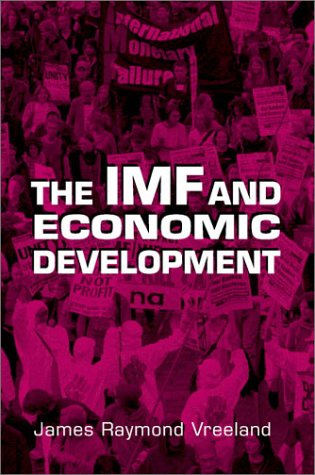|
Vreeland, James Raymond. 2003. The IMF and Economic Development. New York:
Cambridge University Press.

Click to see larger image.
Click here for the book dataset
Reviews of this book:
Milner, Helen. 2005. Perspectives on Politics
Stiles, Kendall. 2004. Perspectives on Politics
Ramcharan, Rodney. 2004. Finance and Development
Kilby, Chris. Choice
Strand, Jonathan R. 2005. Perspectives on Political Science
Kozul-Wright, Richard. 2005. Development and Change
Available:
Amazon
Barnes and Noble
Book Description:
Why do governments turn to the International Monetary Fund
(IMF) and with what effects? Vreeland examines this question by analyzing
cross-national time-series data from throughout the world. He argues that governments
enter into IMF programs for economic and political reasons, and finds
that programs hurt economic growth and redistribute income upward. By
bringing in the IMF, governments gain political leverage - via conditionality -
to push through unpopular policies. For certain constituencies, these
policies dampen the effects of bad economic performance by redistributing
income. But IMF programs doubly hurt others who are less well off: They
lower growth and exacerbate income inequality.
Sample pages
Google Books
Book dataset
|